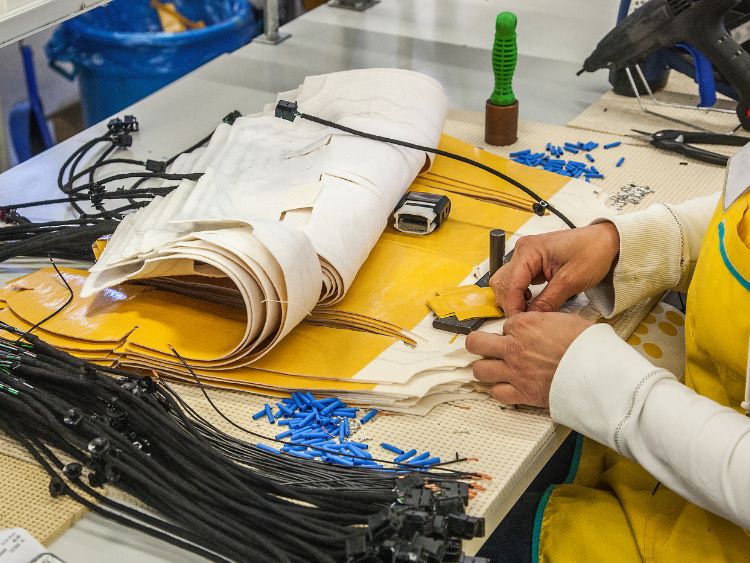Have you ever turned the key in your car’s ignition, only to be met with a disappointing click instead of the engine roaring to life? That moment of frustration could be due to an auto electrical problem. Auto electrical repairs encompass a wide range of services aimed at fixing the electrical systems in your vehicle. From sorting out the starter motor to revamping the car’s computer system, electrical repairs are vital for your car’s smooth operation. In this comprehensive guide, we’ll dive into what auto electrical repairs involve, how you can diagnose issues, and why they are crucial for maintaining your vehicle’s health.
Understanding Auto Electrical Systems
Before we get into the nitty-gritty of repairs, it’s essential to understand the basics of your vehicle’s electrical system. The system is vast and intricate, involving components like:
- Battery: Powers your car’s electrical components
- Alternator: Charges the battery while your car is running
- Starter Motor: Turns over the engine upon ignition
- Lights: Headlights, brake lights, and interior lights
- Sensors and ECUs (Electronic Control Units): Monitor and control various functions like fuel intake, engine temperature, and more
Each of these components plays a pivotal role in your car’s overall performance and efficiency.
Common Signs of Electrical Problems
Identifying electrical issues early can save you time and money. Here are some signs that might indicate your vehicle is due for auto electrical repairs:
- Car won’t start: A dead battery, faulty starter, or other electrical glitches can be the culprits.
- Dimming or flickering lights: This often points to a problem with the alternator or battery.
- Blown fuses: Frequently blown fuses can indicate electrical problems that need professional attention.
- Strange smells or noises: Burning smells or unusual noises can signal short circuits or failing electrical components.
Recognizing these symptoms early can help prevent more severe problems down the road.
Step-by-Step Guide to Diagnosing Electrical Issues
Diagnosing car electrical problems can be tricky, but with a systematic approach, you can pinpoint many issues yourself. Here’s a basic guide:
- Check the battery: Ensure the battery terminals are clean and tightly connected. Use a multimeter to check the battery voltage.
- Inspect the alternator: A malfunctioning alternator can lead to battery drain. Test the alternator’s output with a voltmeter.
- Look for obvious signs of wear or damage: Check wiring and connectors for signs of wear, corrosion, or damage.
- Use diagnostic tools: A car’s OBD-II (On-Board Diagnostics) port is a gateway to discovering a plethora of electrical issues. A scan tool can read diagnostic trouble codes that help identify specific problems.
Handling Auto Electrical Repairs
When tackling auto electrical repairs, here are a few tips to ensure safety and success:
- Disconnect the battery: Always disconnect the battery before working on your car’s electrical system.
- Use the right tools: Equip yourself with a digital multimeter, OBD-II scanner, and other necessary automotive repair tools.
- Consult your vehicle’s manual: The manual can provide insights specific to your car’s electrical system.
- Seek professional help: If the problem is beyond your skill level, it’s wise to consult with a professional mechanic.
Preventive Maintenance for Auto Electrical Systems
Prevention is better than cure, especially with car electrical systems. Here are some maintenance tips:
- Regularly check the battery: Keep an eye on your battery’s health and ensure it’s charged and clean.
- Keep an eye on the alternator: Listen for odd sounds and monitor charging levels.
- Inspect electrical connections: Look for corrosion or looseness, especially if your vehicle is older.
- Test the lights: Regularly check that all your lights are operational and bright.
FAQs About Auto Electrical Repairs
Q1: How often should I get my vehicle’s electrical system checked? A1: It’s advisable to have a professional inspection at least once a year or whenever you notice any signs of electrical problems.
Q2: Can I handle auto electrical repairs at home? A2: Many minor electrical issues can be fixed at home with the right tools and some knowledge. However, complex problems should be handled by professionals.
Q3: What are the risks of neglecting auto electrical repairs? A3: Ignoring electrical issues can lead to bigger problems like vehicle breakdowns or even safety hazards.
Summary
Auto electrical repairs are crucial for the longevity and functionality of your vehicle. By understanding the symptoms of electrical problems and how to address them, you can ensure that your car remains reliable and efficient. Remember, regular maintenance and timely repairs are your best bet in avoiding unexpected breakdowns and costly fixes.

